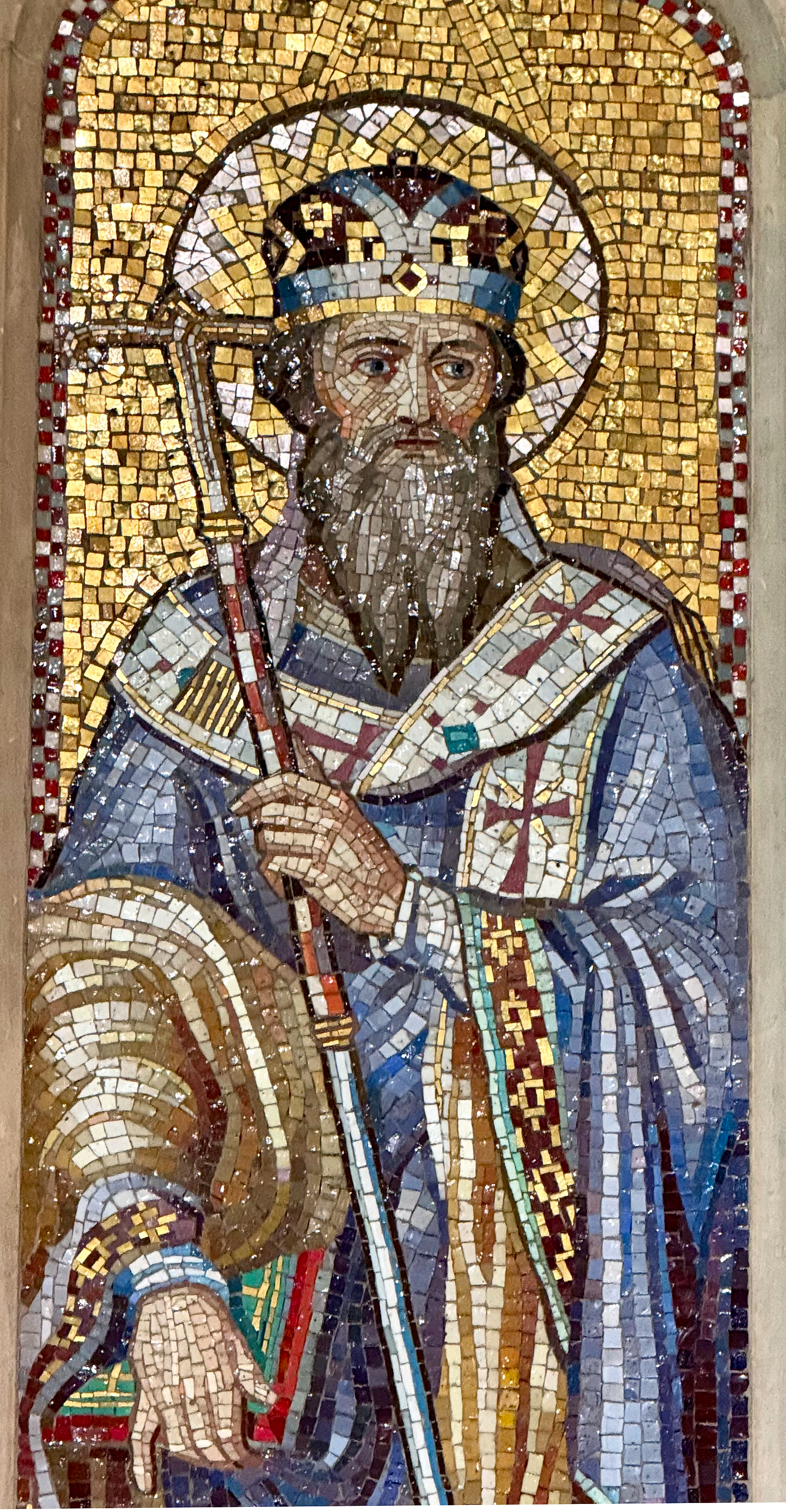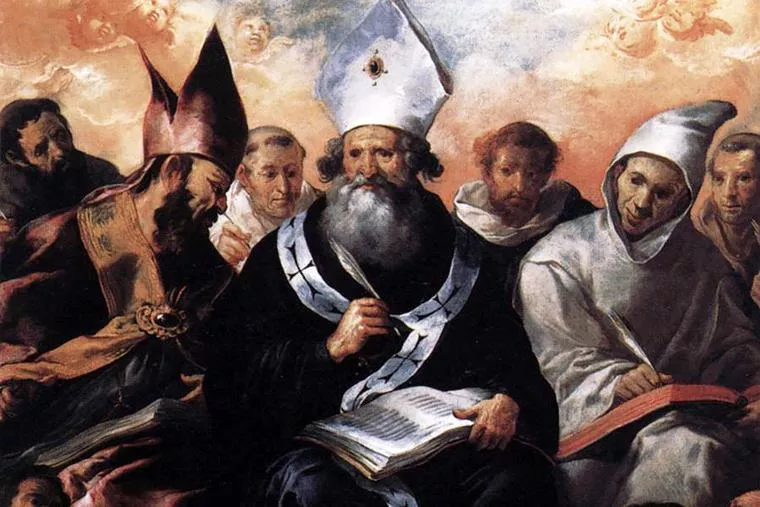Report on St. Basil the Great
Introduction
St. Basil the Great (c. 330–379 AD) is one of the most influential figures in early Christian history, particularly in the development of Christian monasticism and theology. He is widely regarded as one of the “Cappadocian Fathers,” a group of theologians from Cappadocia (modern-day Turkey) who were instrumental in defending and shaping orthodox Christian doctrine during the 4th century. Along with his contemporaries, St. Gregory of Nazianzus and St. Gregory of Nyssa, St. Basil played a pivotal role in the theological debates surrounding the nature of the Trinity, which ultimately led to the formulation of the Nicene Creed.
St. Basil is also known for his efforts to establish Christian monasticism in the East and for his pastoral leadership as Bishop of Caesarea in Cappadocia. His life, writings, and influence have had a lasting impact on the Christian Church, particularly in the Eastern Orthodox tradition, where he is considered one of the greatest of the early Church Fathers.
Early Life and Education
Basil was born around 330 AD in the city of Caesarea (in present-day Kayseri, Turkey), to a wealthy and pious Christian family. His father, also named Basil, was a Christian martyr, and his mother, Emmelia, and grandmother, Macrina the Elder, were deeply religious and played important roles in Basil’s spiritual formation. His family, including his brothers, sister, and extended relatives, were noted for their piety and intellectual achievements.
Basil received a classical education in rhetoric, philosophy, and literature, which were essential for his later work in theology and pastoral leadership. He initially studied at schools in Caesarea and then traveled to Athens, where he studied alongside his friend Gregory of Nazianzus. In Athens, Basil deepened his philosophical knowledge and his understanding of classical Greek thought, which later informed his theological work.
Though Basil initially considered pursuing a career in rhetoric or law, he felt called to the monastic life. Around 356 AD, Basil withdrew from the world to embrace asceticism, seeking a life of prayer, study, and simplicity. His monastic retreat began in the region of Pontus (modern-day northern Turkey), where he lived in solitude and studied the Scriptures.
Monasticism and Asceticism
Basil’s retreat to monastic life was foundational for his later influence on Christian monasticism. During his time in Pontus, he was influenced by both Eastern and Western monastic traditions, particularly the desert monasticism practiced by the Egyptian hermits and the communal monastic life practiced by the Syrians and others in the region. Basil sought to combine the best elements of these traditions, advocating for a balanced approach to monasticism that emphasized both solitude and communal living.
In his writings on monasticism, especially his famous Rule of St. Basil, he emphasized the importance of prayer, work, and community life. The Rule provided a framework for communal monastic living, focusing on humility, obedience, and the pursuit of holiness. Basil’s emphasis on communal prayer and labor, as well as the spiritual discipline of asceticism, became foundational for Eastern monasticism, and his rule was later adopted by many monastic communities, particularly in the Eastern Orthodox Church.
Basil’s monastic reforms laid the foundation for the development of organized monasticism in the East, and his influence can still be seen in the monastic communities of the Eastern Orthodox Church today, such as the monasteries on Mount Athos.
Bishop of Caesarea and Theological Contributions
In 370 AD, Basil was appointed Bishop of Caesarea in Cappadocia, one of the most important sees in the Eastern Roman Empire. As bishop, he became a prominent leader in defending Christian orthodoxy against heresies and a tireless advocate for the Nicene Creed. His efforts to clarify and defend the doctrine of the Trinity were critical in the fight against Arianism, a theological belief that denied the full divinity of Jesus Christ and the Holy Spirit.
Basil’s theological writings helped to shape the course of Christian doctrine in the 4th century. His contributions are especially important in the following areas:
1.The Doctrine of the Trinity: Basil played a central role in defending the Nicene Creed, which had been established at the First Council of Nicaea in 325 AD. The Creed affirmed that the Father, Son, and Holy Spirit were of the same essence (homoousios), meaning that the Son and the Holy Spirit were fully divine. Basil’s theological writings, particularly his On the Holy Spirit, were instrumental in explaining and defending the doctrine of the Holy Trinity, particularly the divinity of the Holy Spirit. Basil emphasized that the Holy Spirit, like the Father and the Son, is consubstantial with God and should be worshipped as divine.
2.Theological Orations: Basil’s orations were key to his influence in the theological debates of his time. His Orations Against Eunomius, for example, refuted the heretical teachings of Eunomius, who argued that the Son was of a different essence from the Father. Basil also wrote extensively on the nature of the Christian life, emphasizing the importance of love, humility, and the pursuit of holiness.
3.Monastic Theology: In addition to his work as a theologian and bishop, Basil’s monastic writings were a key part of his legacy. His Ascetical Works and Longer and Shorter Rules provided guidance for monastic communities and emphasized the importance of communal living, prayer, and ascetic discipline. Basil’s monastic theology became a model for Christian monastic life, particularly in the Eastern Church.
4.Social Justice and Care for the Poor: Basil’s theology was not only concerned with doctrine but also with social justice. He was deeply concerned with the welfare of the poor and the marginalized, and he advocated for charity, especially in times of famine and poverty. Basil’s establishment of a hospital in Caesarea, one of the earliest Christian hospitals, is a testament to his commitment to caring for the sick and poor.
Conflict with Arianism and the Church
During his time as bishop, Basil faced intense conflict with the Arian faction, which continued to challenge the Nicene definition of the Trinity. Basil’s theological work and leadership were critical in opposing Arianism, particularly in the region of Cappadocia. At the same time, Basil navigated the difficult politics of the time, which involved constant tension between the pro-Nicene and pro-Arian factions within both the Church and the Roman Empire.
Basil’s commitment to the Nicene Creed and the unity of the Church was unwavering, and he was willing to endure persecution and opposition to defend orthodox Christian beliefs. His role in the First Council of Constantinople (381 AD), which reaffirmed the Nicene Creed, was instrumental in the final defeat of Arianism.
Death and Legacy
St. Basil the Great died on January 1, 379 AD, at the relatively young age of 49, possibly as a result of overwork and the strain of his intense pastoral and theological endeavors. He was buried in the city of Caesarea, where he had served as bishop. His death was deeply mourned, and his influence continued to grow in the years following his passing.
St. Basil’s legacy endures in many areas of Christian life:
•Eastern Monasticism: The monastic rule he established remains a foundational element of Eastern Orthodox monastic life.
•Trinitarian Theology: Basil’s writings on the nature of God, the Trinity, and the Holy Spirit remain crucial to Christian doctrine, particularly in the Eastern Orthodox Church.
•Social Justice: His emphasis on caring for the poor and his establishment of hospitals set an example for Christian charity and social responsibility that has influenced Christian practice for centuries.
Basil was canonized as a saint by both the Eastern Orthodox and Roman Catholic Churches. His feast day is celebrated on January 1, and he is recognized as one of the great Doctors of the Church, particularly in the Eastern Christian tradition.
Conclusion
St. Basil the Great stands as one of the most influential figures in the history of Christianity. His theological, pastoral, and monastic contributions have left a profound and lasting legacy in both Eastern and Western Christianity. His role in defending the Nicene Creed, his development of Christian monasticism, and his commitment to social justice and charity have made him a model for Christian leadership. Today, St. Basil is revered as a saint, theologian, and Church Father whose influence continues to shape the life and doctrine of the Church.






